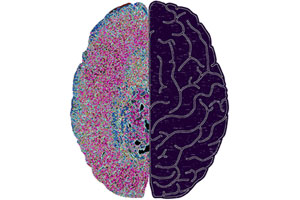Berlin, September 28th , 2017 – Injuries to the brain or spinal cord increase the risk of pneumonia and other infections. So far, little is known about the triggering factors. In „Nature Neuroscience“, scientists of the German Center for Neurodegenerative Diseases (DZNE), of the Charité – Universitätsmedizin Berlin and US researchers now describe a novel pathway linking the nervous and immune systems via hormones. Laboratory studies show that these connections are disturbed after spinal cord injury, thereby weakening the immune system. Observations in patients also support these findings. Results might pave the way for a more effective treatment of infections in individuals affected by acute or, possibly, even chronic injuries of the nervous system such as those underlying neurodegenerative diseases.
Spinal cord injuries: Hormonal dysfunctions weaken the immune system
“We have discovered a two-staged reflex, which runs from the spinal cord to the adrenal gland and from there via hormone signals to the immune system. This opens a new perspective on how the nervous system and the immune system interact”, says Dr. Harald Prüss, who leads a research group at the DZNE’s Berlin site and is also a neurologist at the Charité.
Furthermore, the group of Prof. Frank Bradke at the DZNE's Bonn site was also involved in the study.
The researchers discovered this neuroendocrine pathway in mice. However, analysis on patients revealed that similar hormonal reactions as observed in rodents also happen in humans affected by spinal cord injuries.
“Our findings are in stark contrast to classical concepts”, says Prüss. “Up to now, it was assumed that injuries to the central nervous system would trigger other reactions. In particular, we expected large amounts of adrenaline and norepinephrine to be released. Instead, we observed that levels of these stress hormones go down.”
Prospects for therapy
At present, the researchers are investigating whether the same reflex is also disturbed in chronic diseases of the central nervous system. “We want to find out whether this pathway also contributes to the weakening of the immune system in neurodegenerative diseases,” says Prüss. He notes that people with Alzheimer’s in advanced stage are particularly susceptible to pulmonary infections. “Drugs that affect the hormone balance might help to boost the immune system. This could be an effective strategy to deal with these sometimes life-threatening infections.“
Original publication:
“Spinal cord injury-induced immunodeficiency is mediated by a sympathetic-neuroendocrine adrenal reflex”, Harald Prüss, Andrea Tedeschi, Aude Thiriot, Lydia Lynch, Scott M. Loughhead, Susanne Stutte, Irina B. Mazo, Marcel A. Kopp, Benedikt Brommer, Christian Blex, Laura-Christin Geurtz, Thomas Liebscher, Andreas Niedeggen, Ulrich Dirnagl, Frank Bradke, Magdalena S. Volz, Michael J. DeVivo, Yuying Chen, Ulrich H. von Andrian, Jan M. Schwab, Nature Neuroscience (2017). DOI: 10.1038/nn.4643

